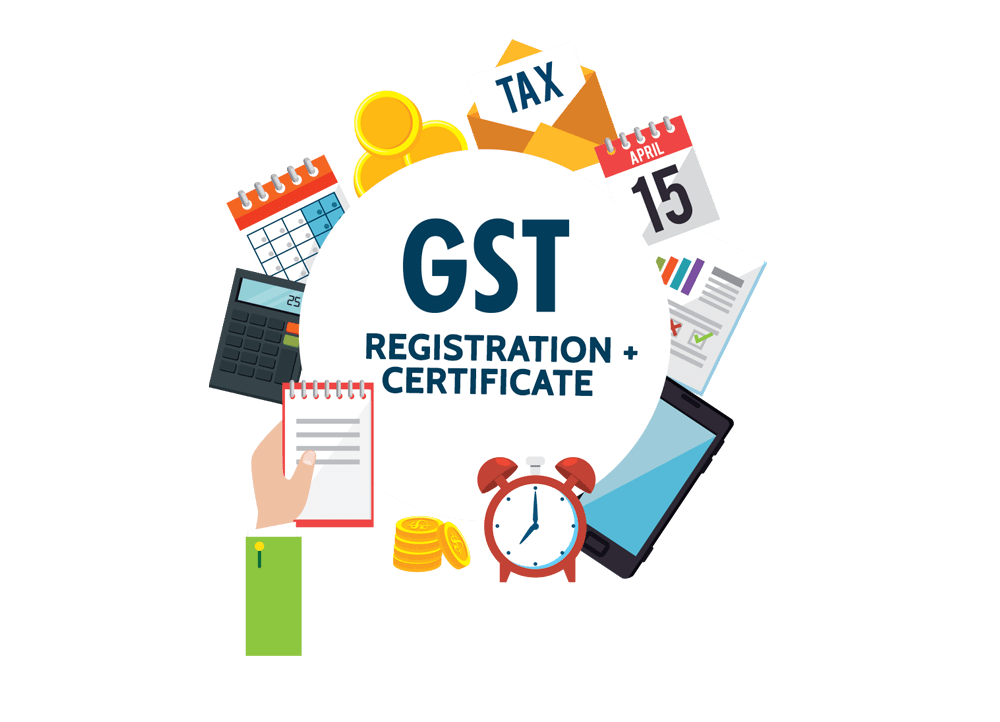The Ultimate Guide to Streamlining the GST Enrollment Process and Demands for Local Business Owners

Comprehending GST Fundamentals
To understand the basics of the Goods and Solutions Tax (GST) system, small business owners have to initially comprehend its underlying concepts and ramifications. GST is a value-added tax obligation levied on most goods and services for residential intake. It aims to streamline the taxation process by replacing multiple indirect tax obligations enforced by the state and central governments. Under the GST regimen, organizations are called for to sign up and collect tax in support of the federal government, making certain transparency and compliance.
One of the vital concepts of GST is input tax credit report, which permits businesses to claim credit report for tax obligations paid on their acquisitions. Comprehending these fundamental concepts is essential for little business proprietors to navigate the complexities of the GST system and make sure conformity with the regulation.
Qualification Standards for Enrollment
Having established a foundational understanding of GST principles, little company owners should now satisfy certain eligibility requirements to wage the registration process. In India, entities engaged in the supply of items or solutions with a yearly accumulation turnover surpassing Rs. 40 lakhs (Rs. 10 lakhs for special category states) are required to sign up for GST. In addition, specific services such as those included in inter-state supply of goods, casual taxed individuals, and those needed to pay tax under the reverse charge mechanism have to sign up for GST irrespective of their turnover. Furthermore, organizations that were signed up under the previous tax regime (BARREL, solution tax, etc) are additionally mandated to sign up under GST. However, farming services that only provide create out of primary manufacturing are excluded from GST registration. It is important for entrepreneur to carefully assess their qualification based on these criteria to make certain compliance with the regulation and prevent any charges for non-compliance.
Papers Needed for GST Registration

Simplified Registration Process Actions
Adhering to the collection and verification of the requisite files, the registration procedure for GST can be browsed via a collection of simplified steps developed to assist in reliable conformity for tiny business owners. Upon effective confirmation, an Application Reference Number (ARN) is issued, indicating the completion of the GST registration process. you could try these out By following these simplified steps, little company owners can successfully sign up for GST and make sure conformity with tax obligation guidelines.
Tips for Ensuring Conformity
To maintain regulative adherence and operational stability, thorough oversight and aggressive actions are pivotal in guaranteeing compliance with GST requirements for little company proprietors. Little service owners need to remain updated with GST policies, filing due dates, and any type of changes in tax rates to avoid fines and keep an excellent standing with tax obligation authorities. Going to GST understanding workshops or training programs can improve understanding and compliance with GST regulations, ultimately benefiting the organization in the lengthy run.
Final Thought
Finally, little company owners must recognize the essentials of GST, satisfy the eligibility criteria, collect needed papers, and follow the simplified enrollment process steps to ensure conformity. By streamlining the GST enrollment process and needs, local business owners can prevent penalties and run their services smoothly within the lawful framework - Singapore GST Registration. It is navigate to these guys critical for tiny company owners to remain informed and certified with GST guidelines to preserve a successful business operation
Tiny business owners seeking GST registration have to ensure they collect and submit the essential papers to complete the enrollment procedure effectively. The documents required for GST enrollment normally include evidence of business registration or unification, PAN (Irreversible Account Number) card of the company identification, entity and address evidence of the promoters/partners/directors, photographs, address evidence of the area of company, financial institution account declarations or canceled cheques, and permission kinds. Attending GST understanding workshops or training programs can boost understanding and compliance with GST guidelines, inevitably benefiting the service in the lengthy run.
By streamlining the GST registration process and needs, tiny business owners can prevent fines and operate their companies efficiently within the lawful structure. It is crucial for little service proprietors to remain informed and compliant with GST laws to keep a successful business operation.